The Truth about Poland and the Holocaust
I bring you today a very complete article written by Alberto Gómez Trujillo, president of the Historical-Cultural Association Poland First to Fight, on a subject that has been generating a lot of controversy: the accusations of anti-semitism against Poland in the World War II.
The Truth about Poland and the Holocaust
by Alberto Gómez Trujillo
In May 2012, during the imposition of a posthumous decoration on the hero of the Polish resistance Jan Karski, President Barack Hussein Obama used the unfortunate expression "Polish death camps" to refer to the extermination camps built and run by the Germans in the Polish territory occupied during the Second World War.
In recent years in the news, in the written press, even in supposedly specialized magazines, this misleading term has been used which is deeply insulting to the Poles, as it can lead to misinterpretations such it were the Poles the ones that built the extermination camps, or that Polish institutions collaborated actively in the holocaust. What is absolutely false, since during the period in which the holocaust took place, all the polish territory was occupied and administered by the Germans.
For this reason recently, the Polish Parliament approved a controversial law, possibly awkward and even inopportune, that even provides penalties for those who claim that the Polish State, as such, took an active part in the extermination of the Jews during the Second World War.
The reactions against have not been made wait. Although the current Polish government has broad popular support within its country (it won the last elections with a large majority), it is also contested by the self-proclaimed progressist minority because of its conservative and catholic nature. On the other hand, its refusal to apply certain policies that Brussels tries to impose is causing conflicts between Poland and the European authorities.
But the reaction against the law has not been translated into a legitimate criticism of the current government only, but also in a revival of unfounded accusations against Poland for alleged collaboration or connivance with the perpetrators of the Holocaust. From the State of Israel, to Polish sectors very critical to their government, apparently, eager to assume a "Black Legend" against their country in order to attack the government, through the media of certain ideological orientations, Jewish pressure groups in the United States, engaged in the restitution or compensation by the Polish State of the property of Jews who died without heirs in the holocaust, and some scholars and authors, notably Jan T. Gross and Jan Grabowski, have set out to affirm Polish complicity in the Holocaust.
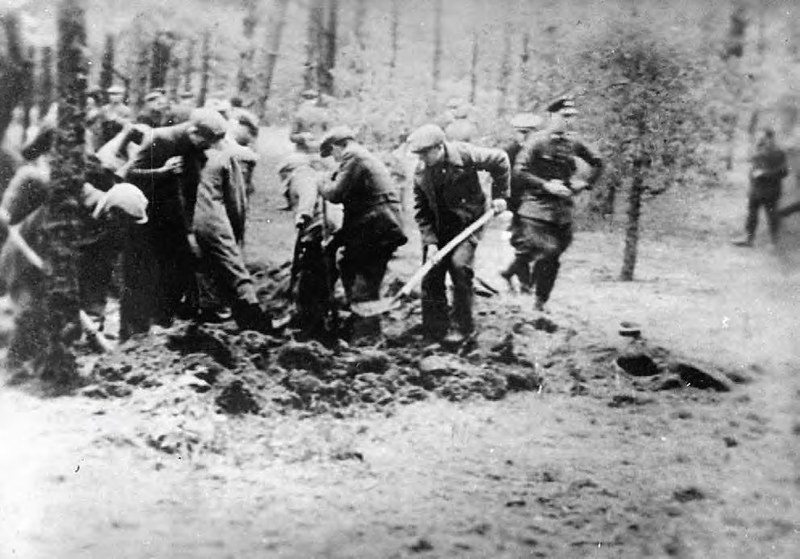
Jan T. Gross's best-known work is the book "Neighbors" which narrates the Jedwadne massacre. This book, to which we will refer later, has been adapted even as a theatrical play. The author's equanimity was clearly portrayed in a 2015 essay that was published in the German newspaper "Die Welt" in which he said that during the war the Poles killed more Jews than Germans. On the other side, Mr.Grabowski, whose best-known work is "The Hunt for the Jew, Treason and Murder of the Jews in Occupied Poland," claims that the Poles were directly or indirectly responsible (whatever this may mean) of the death of more than 200,000 Jews.
It is surprising, of course, the belligerence of some media, such as the newspaper “El País”, which has devoted several articles devoted to anti-Semitism and persecution of Jews in Poland during the war, it is also very scandalized because polish Parliament passed a law "to rewrite history". But it does not show even the slightest concern, in fact even supports it, because of the existence in Spain of laws and bills of historical memory, both at state and regional level, much worse than the one approved in Poland.
It is no less surprising to analyze the editorial line of this media and notice the great concern that this newspaper shows for the Jews who died more than 7 decades ago, in contrast to the lack of concern shown towards the Jews alive today, which is easily verifiable each time it deals with the current situation of Palestine and Israel.
Given these clearly defamatory articles against Poland, the current ambassador of Poland, the Exma. Mrs. Marzenna Adamczyk, has sent several letters to the editor, which the newspaper “El País” has not published, letters from historians such as those of the contemporary history professor D. Jose Luis Orella, or from the members of this association have been also not published.
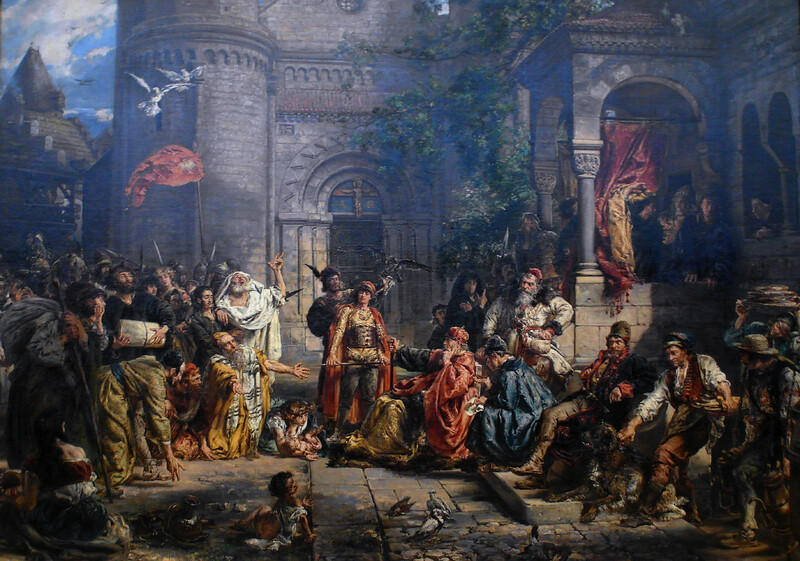
History of the Jews in Poland
To support the claims of collaboration of the Poles in the Holocaust, it is implied (or even asserted without any complex) that in pre-war Poland there was a deep and widespread anti-Semitic sentiment alluding to the famous, but not always certain, Progroms (Ukrainian word, by the way, not Polish). But to understand the complex relations between Jews and Christian Poles we must go back a few centuries in Polish and European history.
Jews began to settle in Poland during the tenth century and Poland was one of the most tolerant countries in Europe, becoming home to one of the largest and most vibrant Jewish communities in the world. In 1264 "Boleslao V the Chaste", prince of the Great Poland, proclaimed the "Statute of Kalisz" that guaranteed to all the Jews the freedom of choice of work, commerce and movement. For the historians of the time Poland had become something similar to a "Jewish Paradise". We must not forget that in this period the Jews had been expelled from most of the countries of Europe.
The Protestant Reformation and the subsequent Council of Trento caused religious tolerance to diminish further throughout Europe. Although some residual effects of this intolerance also came to Poland, we can affirm that in this period the situation of the Jews in Poland was absolutely privileged compared to that of their co-religionists in the rest of Europe.
After the partition of Poland in 1795 and the disappearance of the country as a sovereign state, the Jews were victims of anti-Semitic laws primarily because of the growing anti-Semitism of the Russian Empire (i.e. the Jews were forbidden to live in St. Petersburg, for example), but also of the Empire of the Habsburgs and the Kingdom of Prussia.
We must not forget that anti-Semitism, for religious and economic reasons, was a widespread phenomenon in the Europe of the moment; examples like the Dreifuss case in France attest to this. During the 19th century there were several Progroms against the Jews, most of them in Russian territory although there was one in Warsaw and another in Bialystok where 100 Jews were killed. These Progroms were encouraged and promoted by the Ochraná, the Czarist secret police.
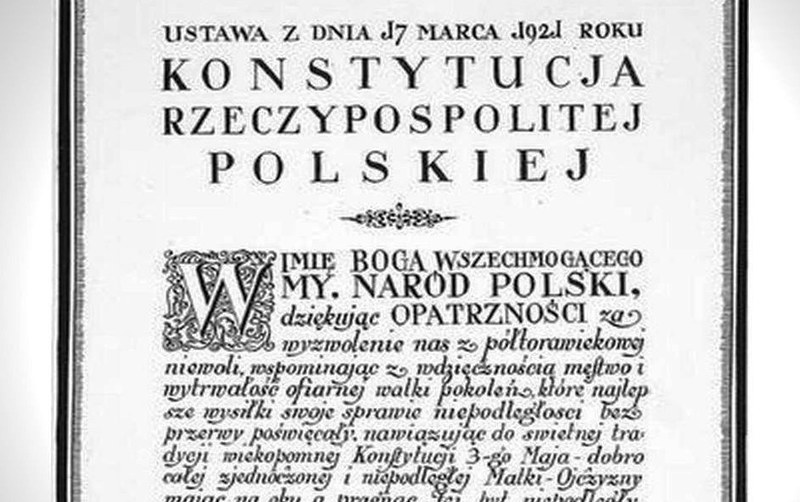
Anti-Semitism in interwar Poland
When dealing with such a contentious issue we must begin by settling something very clear: in the Europe of those times there was a widespread anti-Semitism feeling in all countries, in France itself it had diminished a bit after World War I because tens of thousands of Jews had died in combat defending France, but after the great depression it began to grow again and the French right of that time was clearly anti-Semitic.
Conceptually it is also necessary to clarify that it is one thing to have anti-Semitic feelings, that is, prejudices against the Jews or little sympathy towards them, and quite another thing or another level is to decide, support or approve the extermination of the Jews.
As a consequence of the First World War and the successive conflicts that followed it throughout Eastern Europe (such as the Russian Civil War, the Polish-Ukrainian War and the Polish-Soviet War) there were many pogroms against Jews everywhere. The fact that many of the Bolshevik leaders were of Jewish origin and the sympathy of many Jews by the Bolshevik regime made Jews in general perceived as supporters of the Bolsheviks, so attacks against Jews perpetrated by those who opposed the Bolshevik regime were common. It is believed that these pogroms caused more than 250,000 victims throughout the whole Russian Empire.
When the news about massive pogroms against Jews that were taking place in Poland began to arrive in the West, the president of the United States, Woodrow Wilson, sent to Poland a commission led by Senator Morgenthau to investigate the events. The commission came to the conclusion that the news about the pogroms had been exaggerated and that in many cases they had even been invented. The Morgenthau report identified, ranked and dated eight pogroms (out of 37 that had been reported) between 1918 and 1919 in which between 200 and 300 Jews had been killed. Four of them due to the action of deserters or undisciplined soldiers. None of the pogroms was the result of any official government policy.
The Polish constitution of March 1921 gave Jews full citizenship and the same rights as Polish Poles as well as freedom of worship.
Until the beginning of the Second World War the Jewish population in Poland grew rapidly, since the natural growth was joined by the immigration of Jews fleeing the Soviet Union and, from the rise of the Nazis to power, Germany. So that in 1939 Poland was the European country with the largest Jewish population, in total 3,400,000 Jews lived in the country and accounted for just over 10% of its population. For comparison across Europe there were 9,500,000, of which 2,600,000 lived in the USSR. In Warsaw alone there were 375,000 Jews, a third of the city's population, more than in all of France and twice as many as in the Netherlands.
Due to Polish nationalism and the fact that a large majority of Polish Jews lived segregated from the Catholic majority, the situation of the Jews began to worsen after the death of Pilsudski in 1935. The Jews were not seen by much of the population as authentic Poles and was distrusted of them, nevertheless it is necessary to keep in mind that the feeling of distrust was mutual. For example, according to the 1931 census, 85% of Jews declared Yiddish or Hebrew as their first language, and only 12% considered themselves Jews and Poles at the same time.
However, Jews were an important part of Polish society, in many cities they owned the vast majority of businesses, and by 1939 they constituted 56% of all doctors in Poland, 43% of professors, 22% of journalists and 33% of lawyers.
In 1928, more than 20% of the university students were Jews, but from 1935, the right-wing movement "Endecja" began to promote the unofficial restriction of the number of Jewish students who could enter the university. There were also cases of harassment of students. This process reached its peak in 1937, when quotas were established at some universities to match the percentage of Jewish students to the percentage of the population that they represented. He also began to be discriminated against for access to certain jobs and the civil service. All this was accompanied by physical violence, since between 1935 and 1937 there were seventy-nine Jews killed and 500 wounded in anti-Semitic incidents. There were also boycott campaigns for Jewish businesses.
Of course these facts are scandalous and reprehensible, but we must judge them with some perspective. To give an example, in the Spain of that time, only between the months of February and June of 1936 there were 400 murders for political reasons, and even today in Spain, percentage quotas are proposed for access to different positions and privileges for different collective.
We can conclude that although the situation of the Jews in Poland before the war was far from ideal, and certainly there were anti-Semitic feelings or very little sympathy for the Jews on the part of some sectors of the Polish population, but this situation can not even far compared to what was being lived in the Germany of the time.
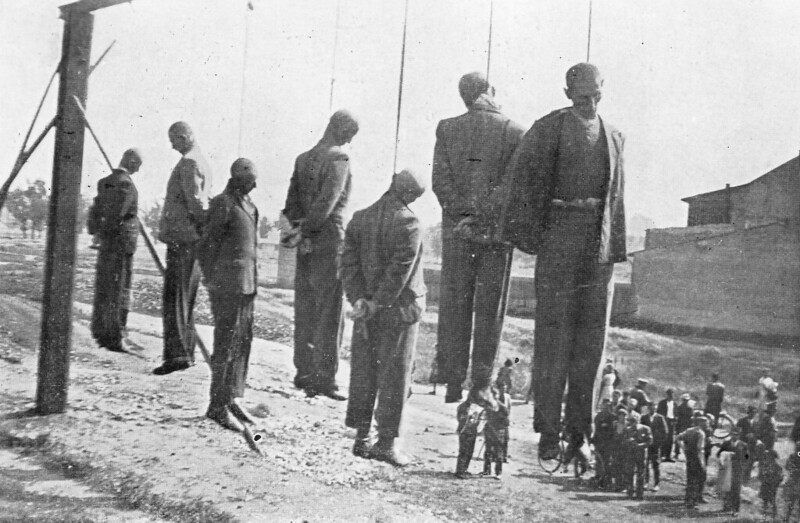
Situation in Poland during the war
"The Poles saw passively, at best, how their Jewish neighbors were being in front of their doors." This unfair affirmation of Jan Grabowski, distills either an enormous hatred and resentment, or an enormous ignorance. As Jan Grabowski is a professional historian we must conclude that unfortunately he does not say it out of ignorance.
Other people, supposedly enlightened and educated, even some Poles (it seems that eager to whip themselves with a black legend) categorically claim that "the Jews died alone" ...
Todat these claims, knowing what happened in Poland during the war, are extremenly unfair. On August 23, shortly before the invasion of Poland, Hitler instructed in Obersalzberg to the High Command of the Werhmach, saying: "Our first priority is the destruction of Poland, our most important objective, to destroy the resources for life in Poland (... ) Mercy and compassion have to be removed from your minds. Therefore I have ordered the SD to kill without mercy men, women and children of Polish origin."
The Polish population had little chance to passively see the extermination of anyone, since they faced their own extermination at the same time. The German "General Ost Plan" envisaged the elimination of all elites and 85% of the Polish population as well as the employment of the survivors as illiterate and slave labor.
When the term "Holocaust" is used, it is automatically understood that we are talking about only the extermination of the Jews of Europe, the international Jewish community actively promotes this view, which is totally false. It is true that the jews constituted the great majority of the victims, but with them hundreds of thousands of Poles, Gypsies, Jehovah's Witnesses, Soviet prisoners, invalids, mentally handicapped, homosexuals were murdered ...
During the Second World War some 6 million Poles died, of them 3 million were Jews and of the other 3 million, 240,000 were combatants killed in combat, the rest were killed in German "pacification actions", reprisals, torture and in the extermination camps (an estimated 200,000 non-Jewish Poles died in the camps, 75,000 of them only in Auschwitz).
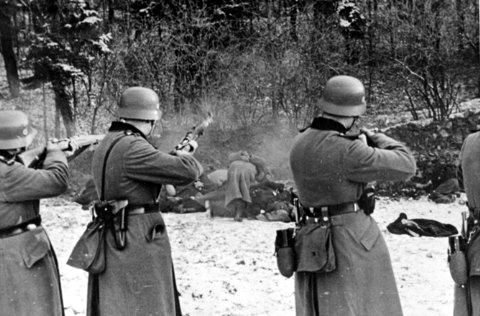
After invading Poland in September 1939, Germany and the USSR divided her territory and immediately applied themselves to the task of destroying Polish culture and the physical elimination of her elites. In the western territories annexed to the Reich, an ethnic cleansing was carried out that involved the murder of tens of thousands of people, entire families, and the expulsion to the territory of the General Government of Poland of thousands of people whose property and livelihoods had been taken from them to be handled to German settlers, or "volkdeutsche" (former Polish citizens of German origin). In Palmiry, the intelligentsia of Warsaw was murdered, thousands of people were deported to concentration camps during AB Aktion and 60,000 were eliminated.
In the area occupied by the Soviets approximately one million Poles, considered dangerous by the USSR (officials, war veterans, officers, priests, intellectuals and their families), were deported to gulags in Siberia. To worsen relations between Jews and Poles, in this area a large percentage of the Jewish population in this area welcomed the Soviet invader (30% according to General Sikorski, although there are current historians who say that this figure is exaggerated and reduced to 10-20%) and there was even collaboration, as many Polish patriots were denounced to the NKVD by their Jewish neighbors, in fact the NKVD came to form an armed Jewish militia to pursue and hunt the Polish partisans, the so-called "Opaskowcy".
The harshness and cruelty of the occupation suffered in Poland was unparalleled in the occupied countries of Western Europe.
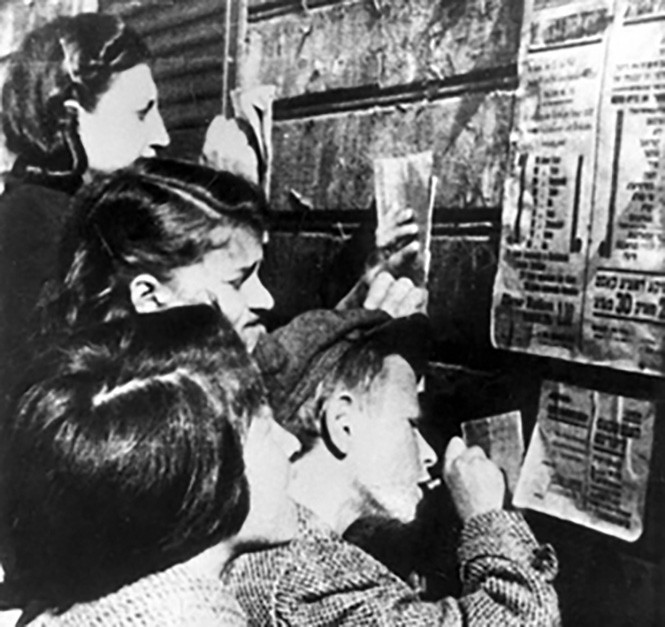
The Germans imposed atrocious living conditions. Rationing was imposed, while a German was entitled to 2400 calories a day, a Pole only received 660 and a Jew 250. This only left the alternative of going to the black market, which was punishable by death.
Education, culture, theater, etc ... was forbidden to the Poles. Attending any of these activities clandestinely involved deportation to a death camp, at least.
In Warsaw alone, during the occupation about 400 people were detained daily in Lapankas (random raids). The detainees were taken to the terrible prison of Pawiak, where they were tortured and held as hostages to be executed in case of resistance actions. Others were taken to camps like those in Auschwitz or deported to work in Germany as slaves. Many young women, many of them Jewish, were forced into prostitution in military brothels.
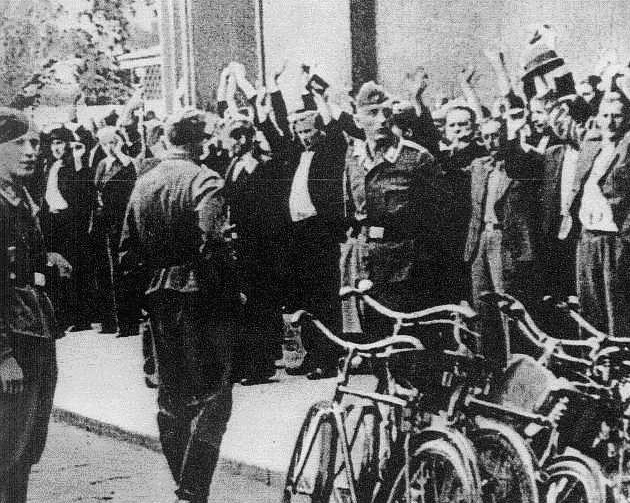
In Poland, every week during the entire war about 400 people were executed on average, about 100 only in the city of Warsaw.
The Governor General Hans Frank had issued an instruction in which the German soldiers were exempted from having to give explanations for killing a Polish man, woman or child.
Approximately 500 Polish villages were destroyed by the Germans during the war along with all its inhabitants.
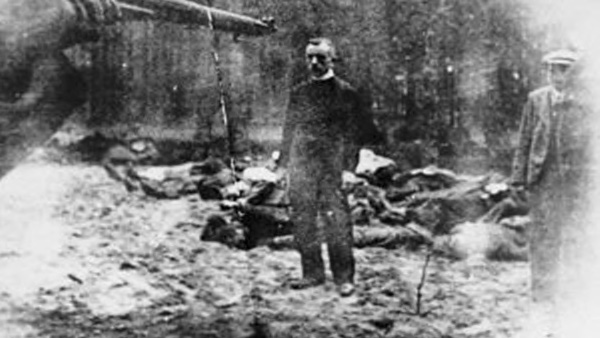
In short, at that time in Poland the survival of all Poles was threatened, and no one could be sure of surviving until the night when he left home in the morning.
Knowing all this ... To what extent can a reasonable person affirm that he "contemplated passively, in the best of cases, the elimination of the Jews ..."? How then should we judge the German people, who were not persecuted or threatened, who had voted overwhelmingly for the Nazis in democratic elections and who, except for a few honorable exceptions, did not protest or resist at any time? However, it is still debated whether the Germans in general knew what was happening.
Who can say that only the Jews died, as if the only victims of Nazi barbarism were them?
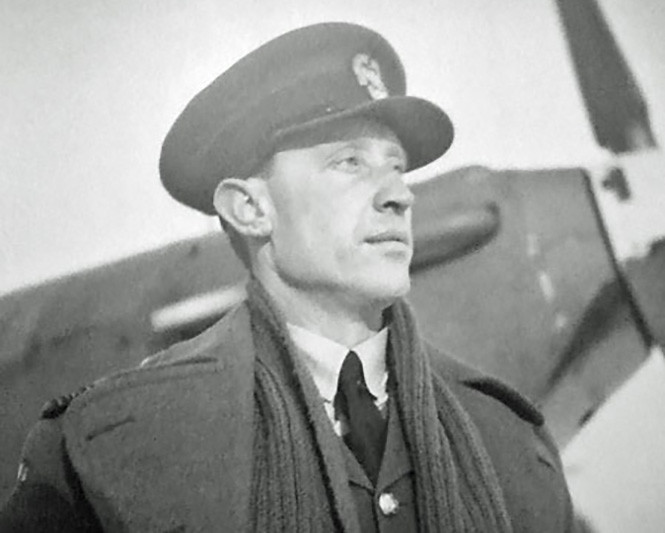
The dignity of Poland
The dignity of Poland and the historical truth demand to make a series of points very clear. Since in Poland there was a series of events, situations and attitudes on the part of his government and a good part of its population, that if we compare them with what happened in many other countries of Europe, they would not leave the latter in a very good place ...
In the first place, Poland did not capitulate, its military units in Poland were destroyed or had to surrender, but the Government moved to France and almost one hundred thousand soldiers escaped to continue fighting, and when France fell they escaped back to England to continue the fight. In Poland there was no armistice or capitulation as in other countries such as Belgium, France or Netherland...
From France first and then from England, the Polish government was determined to continue the struggle and, through the Warsaw delegation, led a genuine clandestine government in Poland that opposed the occupiers.
Second, in Poland the Germans did not establish a puppet government or local collaborationist authorities, there was nothing like Vichy France in Poland, nor a Quisling like in Norway... No Polish institution collaborated with the German occupiers. Contrary to what happened in most European countries, there was not a collaborationist government that, at the command of the Nazis, sent their police to arrest the local Jews to put them in trains and trucks and send them to their death... and we do not talk from any strange minor country... we talk of countries like France, Netherand, Belgium, Norway... and the list goes on.
In addition, Poland was the only country in Europe where the Germans did not find volunteers to fight in their SS volunteer units. Entire divisions were formed in France, Netherland, Belgium, the Baltic countries and Norway ...
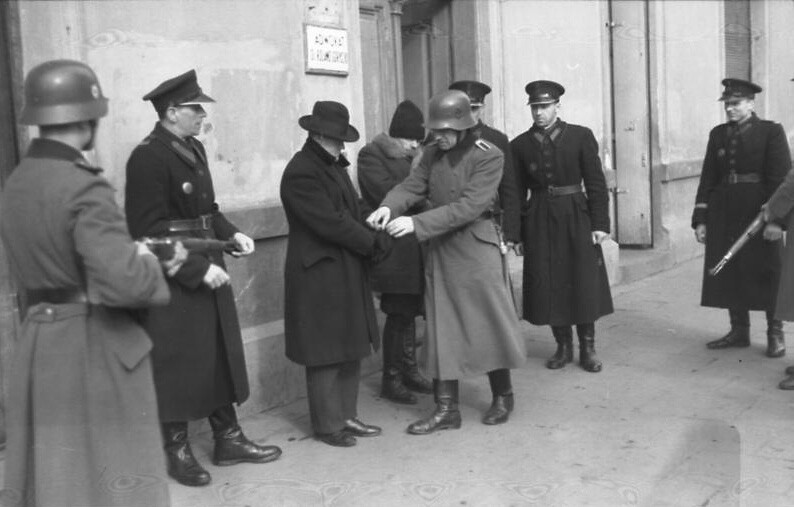
However, Jan Grabowski affirms that the Polish "Blue Police" did collaborate actively in the extermination of the Jews and refers to it as "The lethal Blue Police". The "Blue Police" was the Polish prewar police. On October 30, 1939, the Germans ordered the Polish policemen to return to their posts under the threath of death penalti if they refused to do so. After receiving authorization from the clandestine Polish authorities, the policemen returned to their positions, and although the higher ranks were German, it is estimated that 50% of the policemen collaborated actively with the resistance. Between 10% and 20% of the police were killed by the Germans during the occupation period.
The task of the police was the maintenance of public order, and although the Jewish-Polish historian Emmanuel Ringelblum, states that they participated in raids within the Gettho in Warsaw, in beatings and extortion and in transfers of the Jews to the camps, being therefore responsible for hundreds of thousands of deaths, other authors such as Raul Hilberg, Gunnar S. Paulsson and Piotrowski claim that the involvement of the Polish police in these actions was minimal, much less than that of other polices in other occupied countries, and that in many cases the policemen came to disobey the orders. In fact, several policemen were declared "Righteous Among the Nations".
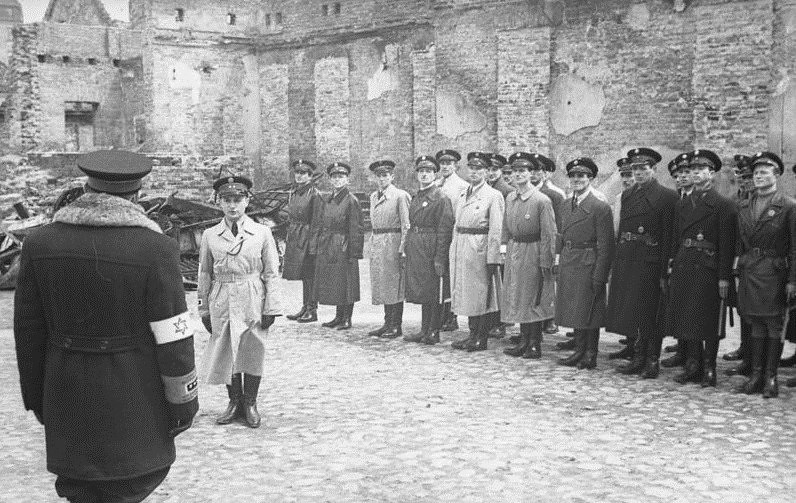
It is doubtful that the Polish police could collaborate in important actions with the Germans, since that would have automatically turned them into traitors in the eyes of the rest of the Poles. Gunnard S. Paulsson says: "You have to take this into account, the Jews in Poland were isolated in ghettos. They were surrounded by the German police with the help of Ukrainian and Baltic collaborators, and had the forced cooperation of the Jewish ghetto police, but very little involvement of the Polish police (mainly in the smaller centers). Transfers to extermination centers were carried out by Germans, Ukrainians and Baltics."
Like everything on this topic, this is a very complex issue that needs to be nuanced. We must be cautious when talking about collaboration in certain situations, because if a very demanding scale is established, as Grabowski and Ringelblum seem to do, the application of that same scale may lead us to consider other similar attitudes, such as those of the "Juden Rat" or of the Jewish police of the different ghettos, as collaboration with the Holocaust. In fact, something like this made the German Jewish politologist Hannah Arendt, who went so far as to say: "The Germans only found collaborationists in the most marginal strata of Polish society, while in the case of the Jews they found them among the elites".
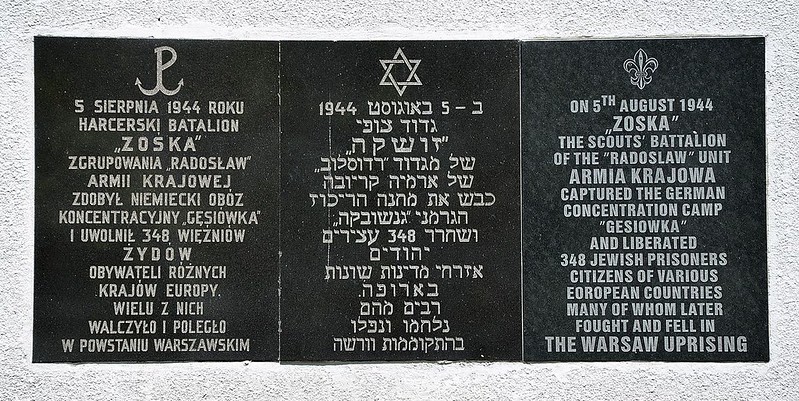
Third. The resistance movement in Poland was the largest and most active in Europe against the occupiers, in early 1944 the AK or "Armia Krajowa" (National Army, or Home Army), which encompassed more than 90% of the Polish resistance against the Germans) had about 400,000 members, which is a huge figure in an occupied country that had 30 million inhabitants before the war. This movement of resistance was the only one in all Europe occupied in having a section, "Żegota", whose exclusive mission was to help the Jews. Three members of the AK high command were Jews: Marceli Handelsman, Jerzy Makowiecki and Ludwik Widerszal.
Armia Krajowa was the only resistance movement that managed to liberate a concentration camp without the support of regular forces. It happened on August 5, 1944 in Warsaw during the Uprising started four days earlier by the Polish resistance. AK forces attacked the Gęsiówka concentration camp, freeing the 348 Jews confined to it. Another similar attack by the AK to free the prisoners from the Pawiak camp failed.
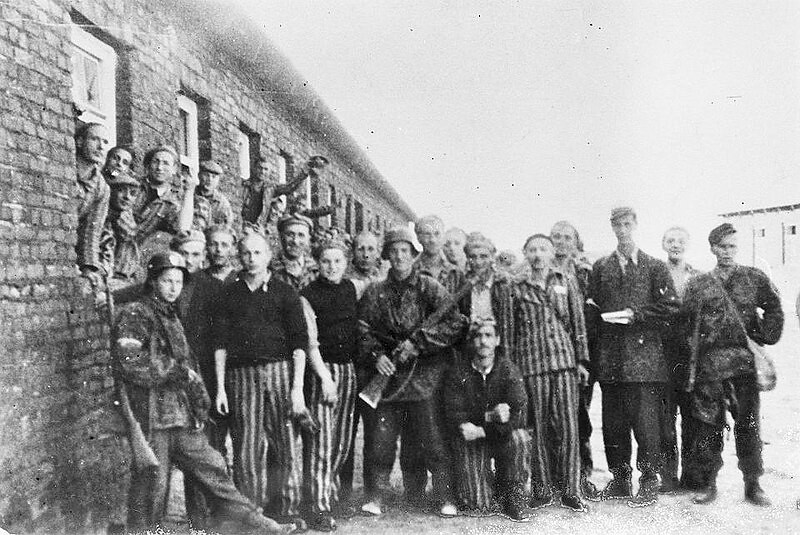
And the Polish resistance not only helped rescue the Jews, but also gave them military help. The Jewish resistance movement of the Warsaw Ghetto received 2 heavy machine guns, 4 light machine guns, 21 submachine guns, 50 pistols and more than 400 hand grenades from Armia Krajowa. During the uprising of the Ghetto in the spring of 1943, the AK supported the rebels with attacks on the Germans outside the Ghetto, with two attempts to blow up the walls and also a group of AK came to fight inside the Gettho. In October, the AK provided explosives to the Sonderkommandos who rose unsuccessfully in the Auschwitz extermination camp.
These proven facts refute the accusations, which are sometimes made, that the A.K. it allowed the Jews of the Ghetto to fight alone and that the aid was minimal. The aid was small, as were the resources available to the Armia Krajowa, resources that could not be entirely pledged in a struggle lost beforehand when they were preparing a great national uprising like the one that took place 14 months later. The same survivors of the Ghetto Uprising recognized that their fight had no greater objective than to be killed fighting like free men, since there was no hope of victory.
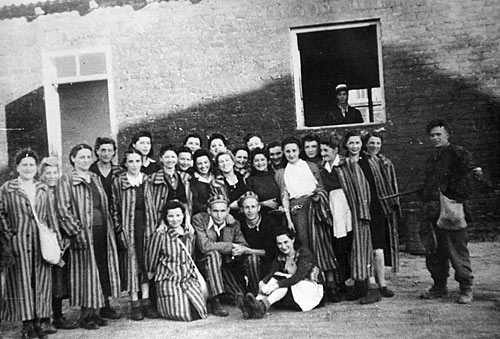
Fourth. Poland was the only occupied country where the penalty for being discovered by helping a Jew involved the immediate execution of all the inhabitants of the home where he had been helped, regardless of whether they were men, women or children. And helping a Jew was not just hiding him, much more innocent actions like providing food or clothes, or providing transportation was considered to help a Jew.
However, tens of thousands of Poles risked their lives trying to save Jews. There are paradigmatic cases like that of Irena Sendler, who saved 2,500 Jewish children from the Warsaw Ghetto; she did not save them alone, it counted on the help of Polish mothers who welcomed these children as their own children among those they already had, risking their lives and that of their children, of nuns and friars who hid the children in convents and monasteries, of priests who falsified baptism and death certificates to give new identities to those children ... ALL the involved ones risked their lives if they were discovered and in fact some 30,000 Poles lost it, murdered by the Germans, accused of having helped the Jews.
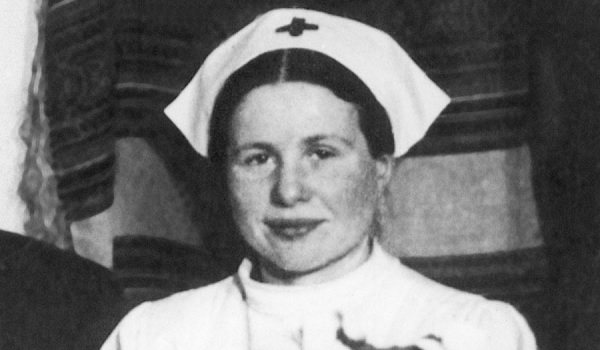
In studies published in the Journal of Holocaust and Genocide Studies, the historians Hans G Furth and Richard C. Lukas estimated at approximately 1,000,000 the number of Poles who helped in some way to save Jews, other authors raise them to 3,000,000 even.
However, Jan Grabowski downplays the number of "rescuers" and states that "they lived in fear, afraid that their friends, relatives or neighbours would denounce them." Again, he seems to forget the enormous collective effort involved in saving a Jew. For a Jew to survive in occupied Poland depended on many acts of assistance and tolerance, writes Paulsson. "Almost all Jews who were rescued were Jews because of the cooperative efforts of a dozen or more people," as also was confirmed by the Polish Jewish historian Szymon Datner. Paulsson points out that during the six years of war and occupation, the average Jew protected by the Poles had three or four sets of false documents and faced recognition as a Jew several times. Datner also explains that hiding a Jew could often last for several years, which exponentially increased the risk to the Christian family involved. Polish Jewish writer and Holocaust survivor Hanna Krall identified 45 Poles who helped protect her from the Nazis and Władysław Szpilman, the Polish-born Jewish musician whose experiences during the war were narrated in his memoirs "The Pianist" and the film of same title, identified 30 Poles who helped him survive the Holocaust.
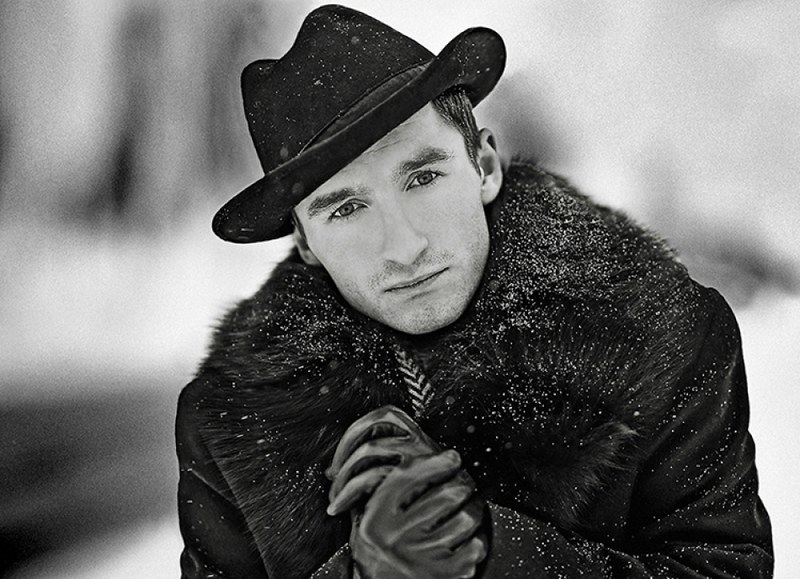
However, in order to lose them all, there was a need only one person that would dennounce them all. It is also necessary to consider that when a hidden Jew was captured, when tortured by the Germans he used to betray all those who had helped him.
In addition, the danger did not come only from the side of non-Jewish Poles: testimonies of the Holocaust confirm that, trapped in the ghettos, the Jewish underworld also took advantage of privileged information about the socio-economic situation of their own countrymen to extort money from them. Jewish looters knew better than anyone "where to dig to obtain valuables," wrote Isaiah Trunk and Rubin Katz. A paradigmatic case, turned into a taboo today, is that of the Saski Hotel, where Jewish criminals collaborated with the Gestapo.
But of course there were collaborators and to judge in what amount, at the end we must go to the cold numbers. And these are crystal clear: statistics from Israel's War Crimes Commission indicate that less than 0.1% of ethnic Poles collaborated with the occupiers. If according to the last pre-war census, there were 24 million ethnic Poles in Poland, this means that less than 24,000 people collaborated with the Germans, whether because of greed, racial hatred, revenge, fear, etc ... extreme circumstances of occupation in Poland, for almost 6 years, is a negligible figure.
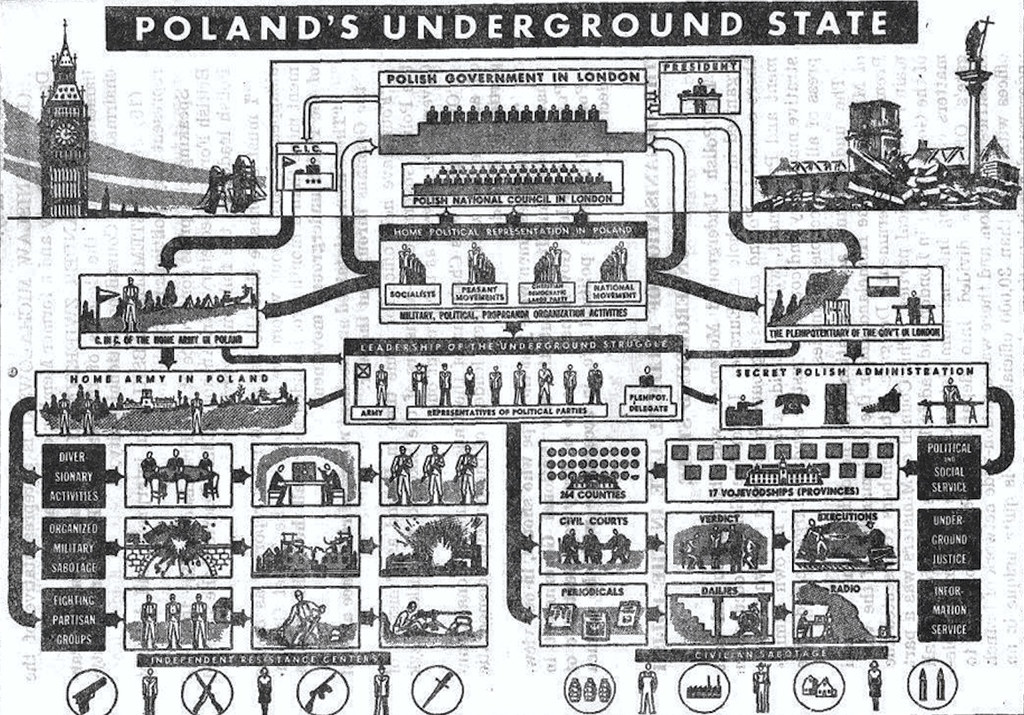
Fifth. The Clandestine Government had courts that judged and condemned the collaborators, and the sentence was death, it was also for those who betrayed and / or extorted the hidden Jews... many death sentences were handed down, some were executed, and many others not because running them entailed enormous risks under the wild occupation that Poland suffered.
In May 1943 General Wladyslaw Sikorski, Polish Prime Minister, signed the following decree: "Any direct and indirect complicity in German criminal actions is the most serious offense against Poland. Any Pole who collaborates in their acts of murder, whether by extortion, reporting on Jews, exploiting his terrible situation or participating in acts of plunder, is committing a very serious crime against the laws of the Polish Republic."
Sixth. Poland gave heroes like Captain Witold Pilecki, a Polish officer who allowed himself to be captured to be sent to Auschwitz to investigate what was happening there, stayed there for almost two years, formed a nucleus of resistance in the camp and after escaping he wrote a report explaining the horrors that happened there. A short time later another hero, Jan Karski, the "mail of horror", fulfilling the orders of the Polish government, crossed all Europe held by the Germans and arrived in England with terrible reports about the extermination camps. Later the Polish government sent him to the United States to tell what he knew first-hand. When he interviewed Roosevelt in July 1943 and told him about the extermination camps, the U.S. President did not believe him and asked him about the condition of the horses in Poland.
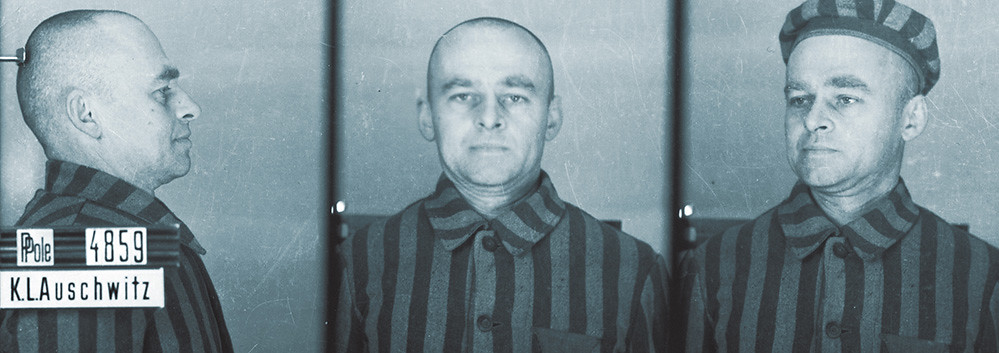
Despite this, there are still those like Grabowski accusing the Polish government of indifference to the fate of the Jews, obviating the actions of brave men like Pilecki or Karski (men under the orders of that Polish government), and the valiant efforts of the Polish Government in London asking its British and American allies to bomb the railways that led to the camps... prayers that fell on deaf ears ...
And when the efforst of the Polish government are explained, there are still those who say that the Polish Government did little. It is true, it did little, because it could do very little, in fact it was not able to ensure its own survival, the continuity of democratic institutions, and the freedom of Poland after the war.
Seventh. In 150 Polish villages all the Jewish neighbors were saved by their Gentile neighbors and many Polish towns were destroyed when it was discovered that the Jews were being hidden. When anyone wants to give an example to the contrary, a name always appears, Jedwadne. Many Polish villages were destroyed when it was discovered that the Jews were being hidden.
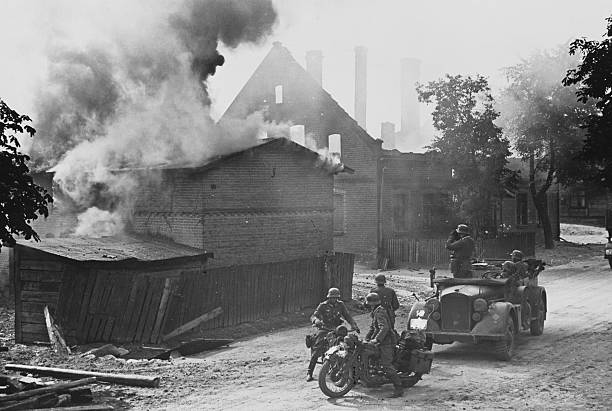
The most famous village in Poland related to the holocaust is Jedwadne. Well, Jedwadne and "many others" we could day. Of these "many others" the names are never told beyond three or four and normally without any accurate details about what happened...
All this thanks to Jan T. Gross (the one that claimed that the Poles killed more Jews than Germans) and his "discovery" of the massacre of the Jews of Jedwadne. We say "discovery" because the Jedwadne massacre was already known much earlier, as there are two previous investigations, a Polish dated in the year 49 and a German of the year 67. However, Gross's studies on the massacre were already discredited by a research carried out carried out by the IPN in 2003 (15 years ago, long before this supposed whitewashing campaign of history by the current Polish Government), which showed that Gross's conclusions are not valid, as it distorts the data and circumstances of the facts to be able to present the massacre as an act of barbarism of the half Catholic town assassinating the other Jewish half. For it, he multiplies by 5 the number of deaths, which go from 300-400 reais to 1500 - although the graves have not been excavated more than partially, because Israel oposition due to religious, what was excavated in the IPN research in 2003 and the size of the graves allow to make a fairly accurate estimate of the number of deaths. On the other hand, it omits that troops of the German gendarmerie were present in the village, as well as the Einsatzgruppe Zichenau-Schroettersburg, who were the only ones armed in it and more than likely also the instigators, since they intervened in similar events in other villages and the system was the same. Nor does it say that due to the testimonies of the surviving witnesses the 40 Polish neighbors who participated in the massacre have been positively identified, and interestingly, two of them, Jerzy Laudański and Karol Bardoń had been collaborators of the NKVD and were now trying to ingratiate themselves with the Germans.
Therefore, what happened was not that half the people killed the other half, and that the approximately 100 Jews who were saved did so either because they were warned by non-Jewish neighbors of what was happening, or because they were being hidden by other Catholic neighbors at the risk of their lives and those of their families, as did the Wyrzykowski family, who hid 7 Jews for 26 months, thanks to that they survived. One detail: one of the testimonies of the massacre used by Gross is that of Szmuel Wasersztaj, who could hardly see anything because during the massacre he was hidden in the barn of the Wyrzykowski. It is also omitted that inside the grave were found the remains of a statue of Lenin, placed by the Soviets in the village.
The historian Norman Davies affirmed that the conclusions of Gross are deeply unfair to the Poles. Another historian, of Jewish origin in this case, Norman Finkelstein, is less pious and accuses Gross of taking advantage of the suffering during the Holocaust.
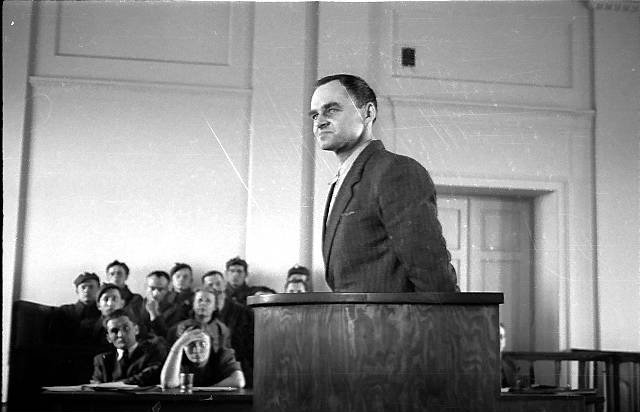
Eight. After the war, the communist authorities tried to discredit the Polish resistance movement: the A.K. It was accused of anti-Semitism and even of collaborating with the Germans in the Holocaust. Many of its members were condemned under these false accusations in parodies of trials, with false testimonies and confessions obtained under torture.
Ninth. In no country was it so dangerous to help the Jews as in Poland, yet no country has as many Righteous Among the Nations as Poland, 6,700 in overall, and in no country there were so many Jews who managed to save their lives. The historian Richard C. Lukas affirmed, that could would be more than 100,000 people in Poland who carried out actions that would make them worthy of this distinction.
Conclusions
In extreme circumstances the true human condition comes to light. It is true that there were people who, out of fear, envy, avarice, anti-Semitism or personal hatred, collaborated with the Germans, who denounced Jews and members of the resistance, who extorted the Jews under the threat of denunciation, who betrayed them to take possession of their assets. There wre such people among the Jews themselves! But they were the minority as has already been demonstrated.
A considerable part of the Polish population, still feeling little or no sympathy for the Jews remained passive, trying to survive themselves and their families, maintaining an attitude of benevolent silence towards the Jews. But it is estimated that for each collaborator, informer or extortionist there were 20 or 30 people who risked their lives and that of their families for helping the Jews.
Nobody denies that there were totally reprehensible facts, but they were isolated facts committed by isolated individuals, they were the exception. The rule, in all its enormity, was exactly the opposite of what some infer, trying to turn what were completely execrable exceptions into a generalized behavior.
It has also been shown that the Polish government institutions of the time did everything in their power to try to avoid what they could not avoid.
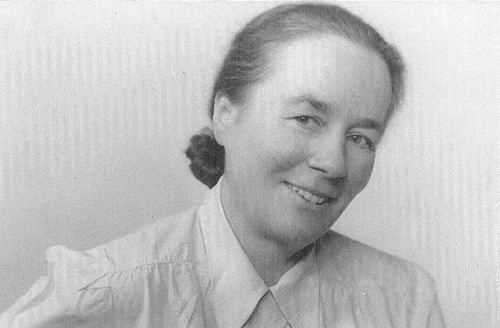
We finish with a literal text by the writer Zofia Kossak-Szczucka, famous Polish writer of the time, Catholic, right-wing and nationalist. She was what we would call an anti-Semitic Pole, one of those Poles who considered the Jews enemies of Poland. However, during the war she founded Żegota and helped Irena Sendler to save the Jewish children of the Ghetto, because of her activities she was arrested by the Germans and deported to Auschwitz. In 1942 the Germans began the liquidation of the Warsaw Ghetto, knowing the horror that was taking place, wrote the manifesto "Protest" of which 5,000 copies were distributed in the occupied city; in it, without trying to hide or whitewash her opinion about the Jews, she said:
"All will perish... Poor and rich, old, men, women, young and children, also Catholics with the name of Jesus and Mary on their lips, along with the Jews. Their only fault is to be born in the Jewish nation, condemned to extermination by Hitler (...) England is silent, also America, even the influential international Judaism, so sensitive in its reactions to any transgression of the rights of its people, shut up. Poland is silent (...) the dying Jews are surrounded by a mob of Pilatos washing their hands innocently (...) those who are silent before the murder become accomplices (...) our feelings towards the Jews have not changed, we still think they are political, economic and ideological enemies of Poland. But this does not exempt Polish Catholics from their duty to oppose the crime that is being committed in Poland. God demands that we protest. God, who forbids killing. Our Christian conscience demands it from us. Every human being has the right to be loved by his peers. The blood of the defenseless asks for revenge to heaven. Those who oppose our protest are not Catholics. (...) We do not believe that Poland benefits from the cruelties of the Germans, on the contrary... We know how poisonous the fruit of crime is... Those who do not understand this, and who believe that a future can be built for a proud and free Poland by accepting the suffering their peers, neither are Catholics, nor are they Poles."
|
Don't miss the news and content that interest you. Receive the free daily newsletter in your email: Click here to subscribe |
- Most read
- The 'hole' without civil flights around Paris during the opening of the Olympic Games
- Spain vetoes the Russian frigate 'Shtandart', which intended to reach Vigo, in all its ports
- The interior of the Statue of Liberty torch and the sabotage that canceled its visits
- The ten oldest national flags in the world that are still in use today
- The BNG boasts of the support of a terrorist group and a dictatorship at a public event
- The Russian intelligence document that sparked a hoax about French troops
- A virtual tour of ancient Rome in full color, just as it was in its heyday
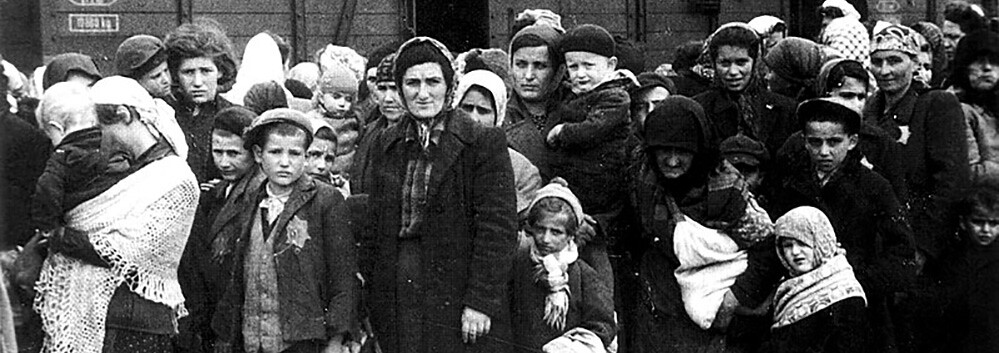
 ES
ES





Comentarios:
Robert Sokolowski
Thank you,for very deep analysis of what happen, when in dark minds of Germans with their sick leader a cruel ideology arose.
Currently some try to blame the victims. It is very important that this lesson humanity take as a warning that never happen again. Unfortunate a little people try change what happen on polish soil.This article is truly worth seeing by the world.
Once again thank you for truth a special now when more voices try again their a little games.
Poles
14:50 | 19/02/19
Marcin
grabowski, gross, engelking are liars.
pilecki the biggest military hero of the second world war, irena sendler the biggest civilian hero .
3:11 | 25/07/19
Marek
A brilliant piece of writing!
4:08 | 29/11/19
Jolka
Given all the facts, we can conclude that Poland saved the face of humanity.
16:57 | 30/11/19
Grzegorz Kieslich
Thank you for this text.
10:36 | 12/07/20
Agnieszka
Thank you for the words of historical truth in the flood of malignant lies. The interesting fact is that creating mutual hostility between Jews and Poles, as well as Ukrainians and Poles was actually a part of nazi German policy. There are documented instances of Gremans fabricating ‘evidence’ of Polish antisemitism and some evidence of Germans influencing Ukrainian Bandera movement (although S. Bandera was proven to be a German agent). There are many untold stories, many of them lost forever, but what baffles me is the fact that the German propaganda somehow manages to still poison people’s minds nowadays.
22:11 | 28/08/20
Opina sobre esta entrada: